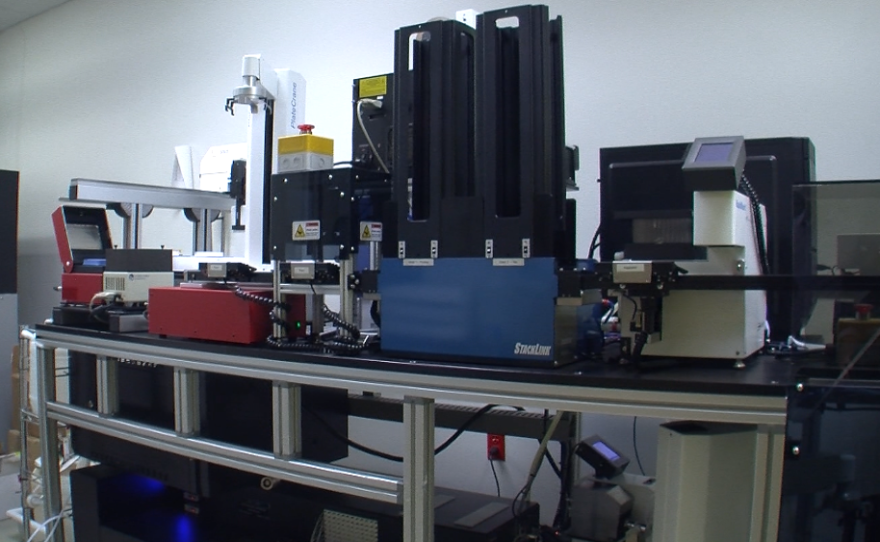A San Diego company has built a machine with the potential to create drugs and vaccines on-demand and without human help.
In a study published this week in the journal Nature Biotechnology, scientists at La Jolla-based Synthetic Genomics, Inc. (SGI) describe their new invention, which they call the "digital-to-biological converter," or DBC for short.
Put simply, the DBC is a printer that's able to take digital DNA code and use it to create proteins, viruses and — potentially — life-saving drugs and vaccines, all without the involvement of a human operator.
Synthetic Genomics vice president Dan Gibson, the study's senior author, said the DBC's automated processes could one day help speed up the response to fast-moving disease outbreaks.
"You can simply send the digitized DNA sequence information for a vaccine to the digital-to-biological converters all around the world, where those vaccines can be made very quickly," Gibson said.
"We've already demonstrated that within 24 hours, we can make synthetic DNA that can be used in producing influenza vaccines," he said.
Gibson and his colleagues also foresee a future where these machines could produce personalized drugs tailored to a patient's specific genome.
"We imagine one day these being in every hospital around the world," Gibson said.
"The cost of whole genome sequencing is coming down dramatically. And turnaround time to get that sequence back is within a day or two. So, thinking about specifically tailoring a medicine to that patient's needs — that's really where the digital-to-biological converter comes in."
The study was co-authored by Synthetic Genomics co-founder and human genome sequencing pioneer J. Craig Venter.
Harvard Medical School biologist Pamela Silver, who was not involved in the study, was impressed by the DBC.
"This has enormous potential to significantly increase the pace of the development of biologics — one of the fastest growing sectors of biotech," she wrote in an email to KPBS.
"Moreover, the ability to respond to unexpected viral outbreaks with rapid vaccine production as demonstrated here by SGI is key to global health."






